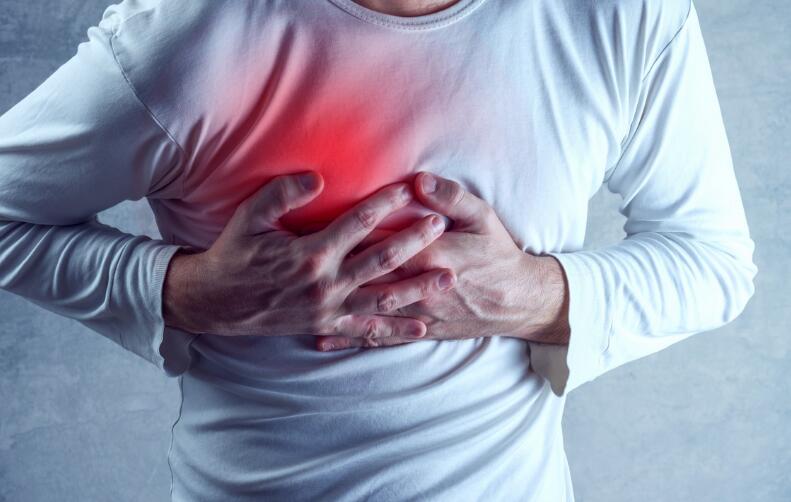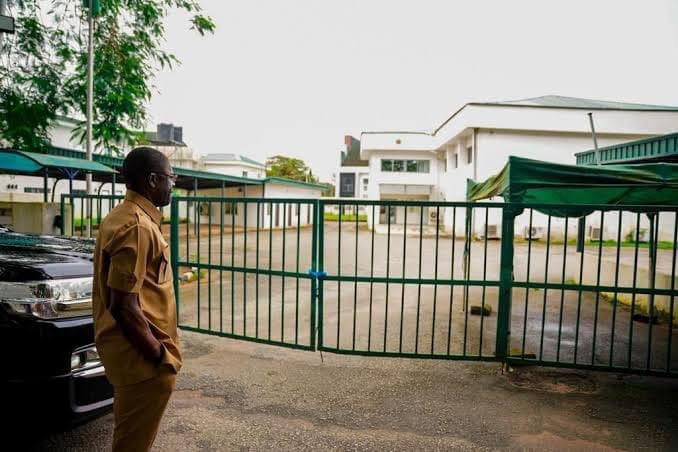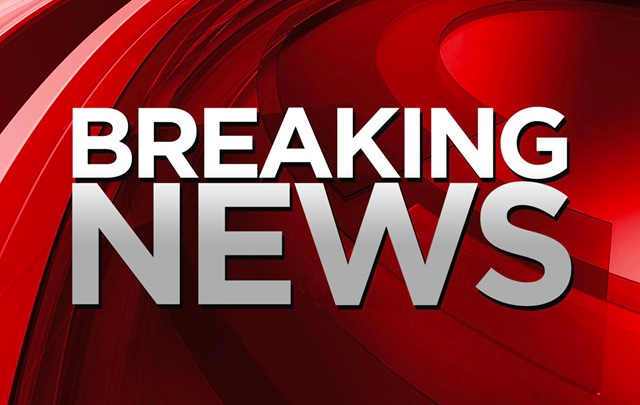14 Causes Of Sharp Pain In The Upper Right Chest

Are you experiencing a sharp pain in your upper right chest? You’re not alone. This type of pain can be both alarming and uncomfortable. It is crucial to identify the cause and seek appropriate treatment. In this article, we will discuss 14 possible causes of sharp pain in the upper right chest and provide some effective treatment options. This can help you better understand your symptoms and take appropriate action.
Anatomy of the Upper Right Chest
Before we dive into the specific causes of sharp pain in the upper right chest, let’s take a moment to understand the anatomy of this region. The upper right chest contains several important structures, including:
- The right lung and bronchi
- The right side of the heart
- The gallbladder
- The liver
- The right side of the diaphragm
- The upper portion of the right kidney
Pain in this area can originate from any of these structures or the surrounding muscles, bones, and nerves.
1. Pleurisy
Pleurisy is an inflammation of the pleura, the thin membrane that lines the inside of the chest cavity and surrounds the lungs. This condition can cause sharp, stabbing pain in the chest that worsens with breathing or coughing. Other symptoms of pleurisy may include:
- Shortness of breath
- Cough
- Fever and chills
- Rapid, shallow breathing
Pleurisy can be caused by a variety of factors, including viral or bacterial infections, autoimmune disorders, lung cancer, or a pulmonary embolism. Treatment depends on the underlying cause and may include pain relief medications, antibiotics, or steroids.
2. Pneumonia
Pneumonia is an infection that inflames the air sacs in one or both lungs, causing them to fill with fluid or pus. This condition can cause sharp chest pain, especially when breathing deeply or coughing. Other symptoms of pneumonia may include:
- Cough with phlegm or pus
- Fever and chills
- Shortness of breath
- Fatigue
- Nausea and vomiting
Pneumonia can be caused by bacteria, viruses, or fungi. Treatment typically involves antibiotics, rest, and drinking plenty of fluids. In severe cases, hospitalization may be necessary.
3. Costochondritis
Costochondritis is an inflammation of the cartilage that connects the ribs to the breastbone (sternum). This condition can cause sharp, stabbing pain in the upper right chest. This usually occurs when taking deep breaths or applying pressure to the area. Other symptoms of costochondritis may include:
- Tenderness in the affected area
- Pain that worsens with movement or deep breathing
- Difficulty breathing
The exact cause of costochondritis is often unknown, but it may be triggered by physical strain, respiratory infections, or certain autoimmune disorders. Treatment typically involves pain relief medications, rest, and applying heat or cold to the affected area.
4. Muscle Strain
A muscle strain in the chest wall can cause sharp pain in the upper right chest, particularly when moving or applying pressure to the area. This type of injury can occur due to overexertion, poor posture, or sudden movements. Other symptoms of a muscle strain may include:
- Tenderness or swelling in the affected area
- Pain that worsens with movement
- Stiffness or limited range of motion
Treatment for a muscle strain typically involves rest, ice or heat therapy, gentle stretching, and over-the-counter pain medications. In more severe cases, physical therapy may be recommended.
5. Gallbladder Issues
The gallbladder is a small, pear-shaped organ located beneath the liver that stores and concentrates bile, a digestive fluid. Gallbladder issues, such as gallstones or inflammation (cholecystitis), can cause sharp pain in the upper right chest that may radiate to the back or right shoulder. Other symptoms of gallbladder issues may include:
- Nausea and vomiting
- Fever and chills
- Jaundice (yellowing of the skin and eyes)
- Clay-colored stools
Treatment for gallbladder issues depends on the severity of the condition. This may include pain management, dietary changes, or surgical removal of the gallbladder.
6. Liver Problems
The liver is a large organ located in the upper right part of the abdomen, just below the diaphragm. Liver problems, such as hepatitis, cirrhosis, or liver cancer, can cause sharp pain in the upper right chest that may radiate to the back or right shoulder. Other symptoms of liver problems may include:
- Fatigue
- Nausea and vomiting
- Abdominal swelling
- Jaundice
- Dark urine and pale stools
Treatment for liver problems depends on the specific condition and may include antiviral medications, lifestyle changes, or surgery.
7. Pancreatitis
Pancreatitis is an inflammation of the pancreas. This is a gland located behind the stomach that produces digestive enzymes and hormones. Acute pancreatitis can cause sudden, severe pain in the upper abdomen that may radiate to the back or chest. Other symptoms of pancreatitis may include:
- Nausea and vomiting
- Fever and chills
- Rapid pulse
- Swollen, tender abdomen
The most common causes of pancreatitis are gallstones and heavy alcohol use. Treatment typically involves hospitalization, pain management, and addressing the underlying cause.
8. Pulmonary Embolism
A pulmonary embolism is a blockage in one of the pulmonary arteries in the lungs, usually caused by a blood clot that travels from the legs or other parts of the body. This condition can cause sudden, sharp chest pain that may worsen with deep breathing or coughing. Other symptoms of a pulmonary embolism may include:
- Shortness of breath
- Rapid or irregular heartbeat
- Cough with bloody sputum
- Dizziness or fainting
A pulmonary embolism is a medical emergency that requires immediate treatment with blood thinners. In severe cases, surgery to remove the clot.
9. Pneumothorax
A pneumothorax, also known as a collapsed lung, occurs when air leaks into the space between the lung and the chest wall. This will cause the lung to partially or completely collapse. This condition can cause sudden, sharp chest pain that may worsen with breathing or coughing. Other symptoms of a pneumothorax may include:
- Shortness of breath
- Rapid, shallow breathing
- Bluish skin color (cyanosis)
- Fatigue
Treatment for a pneumothorax depends on the severity of the condition and may include oxygen therapy, needle aspiration, or chest tube insertion to remove the excess air.
10. Rib Fracture
A rib fracture is a break in one or more of the bones that make up the rib cage. This type of injury can cause sharp, stabbing pain in the chest that worsens with breathing, and coughing. Other symptoms of a rib fracture may include:
- Tenderness or swelling over the injured rib
- Shallow breathing to avoid pain
- Bruising or discoloration in the affected area
Treatment for a rib fracture typically involves pain management, res. Try to avoid activities that put a strain on the injured area. In rare cases, surgery may be necessary to repair the fracture.
11. Shingles
Shingles is a viral infection caused by the varicella-zoster virus, the same virus that causes chickenpox. If you’ve had chickenpox, the virus can lie dormant in your nerve tissue for years before reactivating as shingles.
This condition causes a painful, blistering rash that typically appears on one side of the body, often wrapping around from the back to the chest.
When shingles affect the nerves in the upper right chest, it can cause sharp, burning pain in that area. Other symptoms of shingles may include:
- Sensitivity to touch
- Itching or tingling in the affected area
- Fever and chills
- Headache
- Fatigue
Treatment for shingles typically involves antiviral medications to shorten the duration of the illness and reduce the risk of complications. Pain relief medications, cool compresses, and calamine lotion may also help alleviate symptoms.
12. Pericarditis
Pericarditis is an inflammation of the pericardium, the thin, saclike membrane that surrounds the heart. This condition can cause sharp, stabbing pain in the chest. It may worsen when lying down or taking deep breaths. Other symptoms of pericarditis may include:
- Shortness of breath
- Low-grade fever
- Fatigue
- Dry cough
Pericarditis can be caused by viral or bacterial infections, autoimmune disorders, or certain medications. Treatment typically involves anti-inflammatory medications, pain relievers, and rest.
13. Anxiety and Panic Attacks
Anxiety and panic attacks can cause a range of physical symptoms, including sharp chest pain that may be mistaken for a heart attack. This type of pain is often accompanied by other symptoms such as:
- Rapid, pounding heartbeat
- Shortness of breath
- Sweating
- Trembling or shaking
- Dizziness or lightheadedness
Treatment for anxiety and panic attacks may include therapy, such as cognitive-behavioral therapy (CBT), relaxation techniques, and medications.
14. Heart Attack
A heart attack, also known as a myocardial infarction, occurs when blood flow to the heart is blocked, causing damage to the heart muscle. While chest pain associated with a heart attack is often described as a crushing or squeezing sensation, some people may experience sharp, stabbing pain. Other symptoms of a heart attack may include:
- Shortness of breath
- Nausea and vomiting
- Cold sweat
- Lightheadedness or fainting
- Pain that radiates to the jaw, neck, back, or left arm
If you suspect you or someone else is having a heart attack, call emergency services immediately. Prompt treatment with medications, such as aspirin or blood thinners can be lifesaving.

Home Remedies for Sharp Pain in the Upper Right Chest
While it’s crucial to seek medical attention for severe or persistent pain, some home remedies may provide relief for minor discomfort.
1. Cold or Hot Compress
Applying a cold or hot compress to the affected area can help relieve pain and reduce inflammation. For acute pain caused by muscle strain or injury, start with a cold compress to numb the area and minimize swelling. Wrap a bag of ice or frozen vegetables in a towel and apply it to the painful area for 15-20 minutes at a time.
For chronic pain or discomfort related to acid reflux, a warm compress may be more soothing. Apply a heating pad or warm water bottle to the upper right chest for 15-20 minutes to help relax tense muscles and promote circulation.
2. Ginger
Ginger has natural anti-inflammatory and pain-relieving properties that can help alleviate sharp chest pain caused by gastrointestinal issues like acid reflux or gas. It helps reduce inflammation in the digestive tract and may ease stomach contractions.
To use ginger as a home remedy, try drinking ginger tea, taking ginger supplements, or incorporating fresh ginger into your meals. To make ginger tea, steep sliced or grated fresh ginger in hot water for 5-10 minutes, then strain and add honey if desired.
3. Apple Cider Vinegar
Apple cider vinegar is a popular home remedy for acid reflux, which can cause sharp pain in the upper right chest. The acetic acid in apple cider vinegar may help balance stomach acid and improve digestion.
Mix 1-2 tablespoons of raw, unfiltered apple cider vinegar in a glass of water and drink it before meals. If the taste is too strong, start with a smaller amount and gradually increase it over time.
Be cautious, as consuming too much apple cider vinegar can erode tooth enamel and may interact with certain medications.

4. Baking Soda
Baking soda, or sodium bicarbonate, is an alkaline substance that can help neutralize stomach acid and relieve acid reflux symptoms. Mix 1/2 teaspoon of baking soda in a glass of water and drink it slowly.
However, baking soda contains sodium and should be used in moderation, especially if you are on a low-sodium diet or have high blood pressure. Do not use this remedy for more than a week without consulting your healthcare provider.
5. Turmeric
Turmeric, a spice commonly used in Indian and Middle Eastern cuisine, contains curcumin, a compound with potent anti-inflammatory properties. Consuming turmeric may help reduce inflammation in the body and alleviate pain associated with conditions like costochondritis or pleurisy.
Add turmeric to your meals, drink turmeric tea, or take turmeric supplements as directed. To make turmeric tea, simmer 1 teaspoon of ground turmeric in a cup of water for 5-10 minutes, then strain and add honey or lemon to taste.
6. Garlic
Garlic has anti-inflammatory and antimicrobial properties that may help relieve chest pain caused by respiratory infections or digestive issues. Some studies suggest that garlic may also help reduce the risk of heart disease by lowering cholesterol and blood pressure.
Incorporate fresh garlic into your meals, or try drinking garlic milk. To make garlic milk, crush a few garlic cloves and simmer them in a cup of milk for 5-10 minutes, then strain and drink while warm.

7. Fenugreek Seeds
Fenugreek seeds are a traditional remedy for digestive issues and respiratory problems like asthma, which can cause sharp chest pain. It contains mucilage, a gel-like substance that coats and soothes the digestive tract.
Soak 1 teaspoon of fenugreek seeds in water overnight, then strain and drink the water in the morning. You can also add fenugreek seeds to your meals or brew them into a tea.
8. Relaxation Techniques
Stress and anxiety can exacerbate chest pain and make symptoms feel worse. Practicing relaxation techniques like deep breathing, meditation, or gentle yoga can help reduce stress and promote a sense of calm.
Take slow, deep breaths from your diaphragm, focusing on expanding your belly rather than your chest. Try progressive muscle relaxation by tensing and relaxing different muscle groups in your body, starting with your toes and working up to your head.
When to Seek Medical Attention?
While these home remedies can provide relief for minor chest pain, it’s essential to seek medical attention if your pain is severe, persistent, or accompanied by other concerning symptoms. Call your healthcare provider or seek emergency care if you experience:
- Chest pain that feels crushing, squeezing, or pressure-like
- Pain that radiates to your jaw, neck, back, or left arm
- Shortness of breath or difficulty breathing
- Rapid or irregular heartbeat
- Dizziness, lightheadedness, or fainting
- Nausea or vomiting
- Sweating or clammy skin
These symptoms may indicate a serious condition. A heart attack, pulmonary embolism, or pneumothorax, requires immediate medical intervention.





